
December 20
1884 Birth: Marius H.L.W. 'Max' Blokzijl: Dutch Nazi collaborator and traitor. Dutch journalist and singer, born in Leeuwarden, N Netherlands. During 1907-13 he traveled around the world with J P Pisuisse as a very successful cabaret act. He was a war correspondent (1917-18) and Berlin correspondent of Het Algemeen Dagblad (1918-40). In 1935 he became a secret member of the National Socialist Movement (NSB). During the German occupation of The Netherlands he was head of publicity of the Department of Information (1941), broadcasting frequently, and was regarded as a leading collaborator. He was arrested in 1945, tried, and shot.
1906 Birth: Dick White:Head of British secret service (MI5/MI6).
1914 World War I: First Battle of Champagne begins:
After minor skirmishes, the First Battle of Champagne begins in earnest, marking the first major Allied attack against the Germans since the initiation of trench warfare on the Western Front. [For further details, Click here.]
1915 World War I: Gallipoli: British, Australian and New Zealand troops are evacuated from the ill-fated expedition.
1917 Bolshevik Revolution: The Cheka is established as an investigative agency and quickly transforms itself into a political police force committed to the extermination of all opponents of Soviet ideology. Its founding director was the mysterious Felix Dzerzhinsky, who is quoted as saying, "The Cheka is not a court. We stand for organized terror. The Cheka is obligated to defend the Revolution and conquer the enemy even if its sword by chance sometimes fall upon the heads of the innocent."
1918 Various:
World War I: President Masaryk's Address on Entering Prague: I am too moved to speak. This is the first time in four years that I have been so deeply touched. We know how much worked against us and how many difficulties we had to overcome, but we will find a friendly way out. Dr. Kramar said that you were impatiently waiting my coming. I also was impatiently awaiting the moment when I should come here to continue your work. How many sleepless nights I have passed during these four years! I knew you were oppressed and how hard was your task. You are all heroic and strong with a strength which showed that you were unitedly back of your leaders, though they were exiled. My heart speaks its thanks. I promise that my efforts will continue without wavering.
Volkishness: Sebottendorff plans to kidnap Kurt Eisner at a rally in Bad Abling: Sebottendorff
There are two claims made about the German Nazis that have been debunked by scholarly research but which continue to enjoy popular interest. The first is that Adolf Hitler and the Nazis were driven by an occult agenda; that their early success, and ultimate failure, was a result of either supernatural intervention, or their magical attempts to control the supernatural. A second claim is found in certain branches of conspiracy theory: that the Nazis were created by the Freemasons. It is a curious historical footnote that a link can be found between the National Socialist German Workers' Party (NSDAP), founded in 1920, and the Germanenorden, a magical fraternity founded at a conference of occultists in May of 1912, organised by disciples of Guido von List (1848-1919/05/17) and Adolf Lanz, aka Jorg Lanz von Liebenfels (1874-1954) in the home of Theodor Fritsch. The link was Rudolf Glandeck von Sebottendorff (1875/11/09 - 1945/05/09). The son of a Silesian railway engineer, Sebottendorff was born Adam Alfred Rudolf Glauer. He travelled to Turkey in 1900, where he was adopted by Baron Heinrich von Sebottendorff in 1909, and also claimed to have been initiated into Freemasonry. Changing his name and taking Turkish citizenship, he returned to Germany in 1913. Sebottendorff's version of Freemasonry did not prevent his striking up a friendship with the Germanenorden chancellor, Hermann Pohl, who violently opposed Freemasonry as being international and Jew-ridden, but who used masonic terminology and organizational structure, believing this would insure secrecy.
1919 USA: The House of Representatives passes legislation restricting immigration.
1922 Various:
Soviet Union: Poland: Parliament selects Stanislaw Wojcieckowski as president.
1924 Weimar: Adolf Hitler is released from Landsberg prison after serving less than nine months of his five-year sentence. He had spent the time reading, a 'university at state expense,' as he put it, and dictating his future bestseller, Mein Kampf.
1927 Nazi Party: Rudolf Hess marries Ilse Proehl after a seven-year relationship.
1933 Various:
Romania: Holocaust: The Aryan Lawyers' Association demands that the Austrian Ministry of Justice expel all Jewish lawyers)
1936 Holocaust:Walter Gross, chief of the Nazi Racial Bureau, announces a nationwide racial propaganda campaign.
1937 Death: Erich von Ludendorff: German general, politician, at 72. General Ludendorff was the virtual dictator of Germany during the final years of World War I. During the Munich Putsch on November 9, 1923, he walked with Hitler at the head of the Nazi column and was quickly arrested. Ludendorff was found not guilty and returned to home in the country. According to Hitler, Ludendorff's staunch opposition to the Catholic Church caused their split after the Putsch. Ludendorff and his second wife, Mathilde von Kemnitz, published a number of viciously anti-Semitic, anti-Freemason and anti-Catholic publications right up until the time of his death. It is said that Ludendorff warned Hindenburg against appointing Hitler chancellor. Hitler attends his funeral.
1939 Death (suicide): Hans Langsdorff:German captain of the scuttled Graf Spee.
1940 Holocaust:New anti-Semitic laws are introduced in Bulgaria. Other measures against Freemasons and secret societies are also instituted. The Jewish population of Bulgaria at this time is about 50,000. (THP)
1941 World War II: Various:
Hitler to Halder: No retreat! On this day, in one of his first acts as the new commander in chief of the German army, Adolf Hitler informs General Franz Halder that there will be no retreating from the Russian front near Moscow. "The will to hold out must be brought home to every unit!"
Halder was also informed that he could stay on as chief of the general army staff if he so chose, but only with the understanding that Hitler alone was in charge of the army's movements and strategies.
Halder accepted the terms, but it was another blow to their already tense relationship. Halder had been at odds with the Fuhrer from the earliest days of the Nazi regime, when he spoke disparagingly of Hitler's leadership ability and feared that "this madman" would plunge Germany into war. Promoted to chief of staff in September 1938, Halder began concocting an assassination scheme shortly thereafter along with other military officers who feared another European war over the Sudetenland crisis, when Hitler demanded the German-speaking population of Czechoslovakia-and the territory in which they resided-be made part of a greater Germany. Only a "peaceful" resolution to the crisis—the forced diplomatic capitulation of Czechoslovakia—killed the conspiracy. With Hitler's popularity among the German people growing, and the timidity of the then-commander in chief of the army, General Walter von Brauchitsch, Halder learned to live with the "madman" in power.
But Halder would continue to butt heads with Hitler, urging that military strategy be left to the general staff when Hitler wanted to impose his imperious will on the army. But as the offensive against Moscow collapsed, an offensive which Halder had supported, and for which he began to agonize over, given the number of German dead, Halder could only concede to Hitler's seizing of power, if just to retain his position on the general staff. By staying on, Halder hoped to be able to protect the remaining German troops on the Eastern front from the consequences of Hitler's obsession over defeating the Soviets. Unfortunately, Hitler dismissed Halder during another disastrous Russian offensive, this one against Stalingrad in 1942. (History.com)
Barbarossa: Hitler dismisses Guderian from command for disobeying his order not to give up one inch of ground: Guderian was adjusting his front line in order to shorten it. At the end of 1941, Hitler is left wondering what is holding the Red Army together. The Russians had lost 3 million soldiers; its entire strength at the start of the war. Fully half of its economic base is in German hands. But Russia is still strong. It has 9 million men of military age left, enough for 400 divisions, and will produce 4500 new tanks over the winter. Germany cannot match either of these numbers. A sustained battle of attrition strongly favors Russia. (THP)
War in the Pacific:: Japanese troops land on Mindanao.
1942 Church and Reich: A pastoral letter by the new Archbishop of Cologne, Dr. Joseph Frings, is read in his archdiocese. It insists that all men have the right to life, property and marriage, and that these rights cannot be denied be denied even to those "who are not of our blood or do not speak our language. (THP)
1944 World War II: Various: Murder of POWs and civilians: Note: Some pro-Germans believe these figures are a fantasy created by Allied propagandists. The alleged civilian slaughtering, they say, stands without proof and the many pictures in books depicting "Belgians murdered by the SS" are nonsense. There was one incident, however, which German soldiers readily admitted: one child was killed when he came running down the street looking at the tanks and was shot by mistake by one of the SS soldiers. (THP)
Battle of Bastogne:The Germans surround the US 101st Airborne in a crucial event in the Battle of the Bulge.
1945 Various: Austria: Karl Renner is elected first president of the new Second Austrian republic:
He was born in Unter-Tannowitz (Dolna Dunajovice, Moravia) and died in Vienna. Renner was born as the 18th child of a poor farmer's family but because of his talents he was allowed to go to high school, and later study law at the University of Vienna from 1890 to 1896. In 1895 he was one of the founding members of the Naturefriends, and invented their logo. Renner was always interested in politics and became librarian in parliament and member of the Austrian Social Democratic Party (SPD) in 1896. He started to represent the party in the Reichsrat in 1907. Afterwards, Renner was Chancellor of Austria and Minister of Foreign Affairs from 1918 until 1920. The peace treaty of St. Germain was signed in 1919 between Austria, under the leadership of Karl Renner, and the victorious Allies of World War I, and declared Austria a republic. From 1931 to 1933 Renner was President of the Representative Assembly. He always pleaded for the annexation of Austria with Germany but distanced himself from politics during the war. After the collapse of the Third Reich, Renner tried to build up a Provisional Government and campaigned for Austria to be acknowledged as an independent republic. He was the first Chancellor after World War II. In 1945 he became the first President of the Second Republic. Karl Renner died in 1950 and was buried in the Zentralfriedhof in Vienna.
1957 Elvis Presley is drafted: On this day in 1957, while spending the Christmas holidays at Graceland, his newly purchased Tennessee mansion, rock-and-roll star Elvis Presley receives his draft notice for the United States Army.
With a suggestive style—one writer called him "Elvis the Pelvis"—a hit movie, Love Me Tender, and a string of gold records including "Heartbreak Hotel," "Blue Suede Shoes," "Hound Dog" and "Don't Be Cruel," Presley had become a national icon, and the world's first bona fide rock-and-roll star, by the end of 1956. As the Beatles' John Lennon once famously remarked: "Before Elvis, there was nothing." The following year, at the peak of his career, Presley received his draft notice for a two-year stint in the army. Fans sent tens of thousands of letters to the army asking for him to be spared, but Elvis would have none of it. He received one deferment—during which he finished working on his movie King Creole—before being sworn in as an army private in Memphis on March 24, 1958.
After six months of basic training—including an emergency leave to see his beloved mother, Gladys, before she died in August 1958—Presley sailed to Europe on the USS General Randall. For the next 18 months, he served in Company D, 32nd Tank Battalion, 3rd Armor Corps in Friedberg, Germany, where he attained the rank of sergeant. For the rest of his service, he shared an off-base residence with his father, grandmother and some Memphis friends. After working during the day, Presley returned home at night to host frequent parties and impromptu jam sessions. At one of these, an army buddy of Presley's introduced him to 14-year-old Priscilla Beaulieu, whom Elvis would marry some years later. Meanwhile, Presley's manager, Colonel Tom Parker, continued to release singles recorded before his departure, keeping the money rolling in and his most famous client fresh in the public's mind. Widely praised for not seeking to avoid the draft or serve domestically, Presley was seen as a model for all young Americans. After he got his polio shot from an army doctor on national TV, vaccine rates among the American population shot from 2 percent to 85 percent by the time of his discharge on March 2, 1960. (History.com)
1960 Holocaust:The last Auschwitz commandant, Richard Baer, is arrested in the German Federal Republic: Richard Baer (SS-Sturmbannfuehrer), born in Bavaria in 1911, became a confectioner and was unemployed since 1930, before he joined the guards in Dachau concentration camp. Later, he said that not politics, but "the joy of playing soldier" had brought him to the SS (Frankfurt in 1960, report to the attourney at law). In 1939, he became a member of the "SS-Totenkopfdivision" and was appointed adjutant of Neuengamme concentration camp in 1942. Since 1943, he was adjutant of SS-Obergruppenfuehrer Oswald Pohl, chief of the Wirtschaftsverwaltungshauptamt (office of economic policy). In November 1943, he overtook the department D I, the "inspectorate for the concentration camps". After Arthur Liebehenschel, Baer was then the third and last commander of Auschwitz from May 11, 1944 to the evacuation and dissolution of the camp in January 1945. At the end of the war, he went into the underground and appeared as Karl Neumann next to Hamburg until 1960. In December 1960 he was arrested and died in detention in 1963.
1963 Various:
Holocaust: Cold War: Berlin Wall opened for first time: More than two years after the Berlin Wall was constructed by East Germany to prevent its citizens from fleeing its communist regime, nearly 4,000 West Berliners are allowed to cross into East Berlin to visit relatives. Under an agreement reached between East and West Berlin, over 170,000 passes were eventually issued to West Berlin citizens, each pass allowing a one-day visit to communist East Berlin.
The day was marked by moments of poignancy and propaganda. The construction of the Berlin Wall in August 1961 separated families and friends. Tears, laughter, and other outpourings of emotions characterized the reunions that took place as mothers and fathers, sons and daughters met again, if only for a short time. Cold War tensions were never far removed from the scene, however. Loudspeakers in East Berlin greeted visitors with the news that they were now in "the capital of the German Democratic Republic," a political division that most West Germans refused to accept. Each visitor was also given a brochure that explained that the wall was built to "protect our borders against the hostile attacks of the imperialists." Decadent western culture, including "Western movies" and "gangster stories," were flooding into East Germany before the wall sealed off such dangerous trends. On the West Berlin side, many newspapers berated the visitors, charging that they were pawns of East German propaganda. Editorials argued that the communists would use this shameless ploy to gain West German acceptance of a permanent division of Germany.
The visits, and the high-powered rhetoric that surrounded them, were stark reminders that the Cold War involved very human, often quite heated, emotions. (History.com)
Edited by Levi Bookin (Copy editor) Click to join 3rdReichStudies
FAIR USE NOTICE: This site may contain copyrighted material the use of which has not always been specifically authorized by the copyright owner. We are making such material available in our efforts to advance understanding of historical, political, human rights, economic, democracy, scientific, environmental, and social justice issues, etc. We believe this constitutes a 'fair use' of any such copyrighted material as provided for in section 107 of the US Copyright Law. In accordance with Title 17 U.S.C. Section 107, the material on this site is distributed without profit to those who have expressed a prior interest in receiving the included information for research and educational purposes. If you wish to use copyrighted material from this site for purposes of your own that go beyond 'fair use', you must obtain permission from the copyright owner.
Please note that the list-owner and the moderator are not responsible for, and do not necessarily approve of, the random ads placed on our pages by our web server. Unfortunately, they are the price one pays for a 'free' website.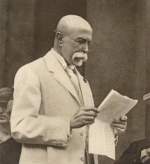
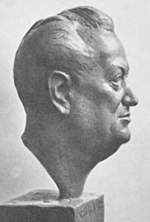
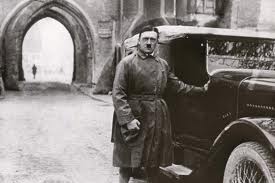
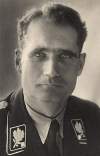
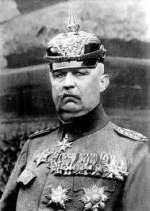
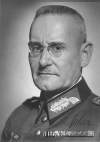
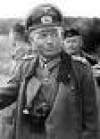
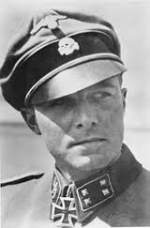

Continuation of Major Warren F. Farr's Presentation of the Case Against the SS.
Beginning of Col. Robert Storey's Presentation of the Case Against the Gestapo.
Note: The trial now goes into Christmas recess until January 2, 1946.
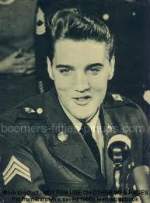


levi.bookin@gmail.com






